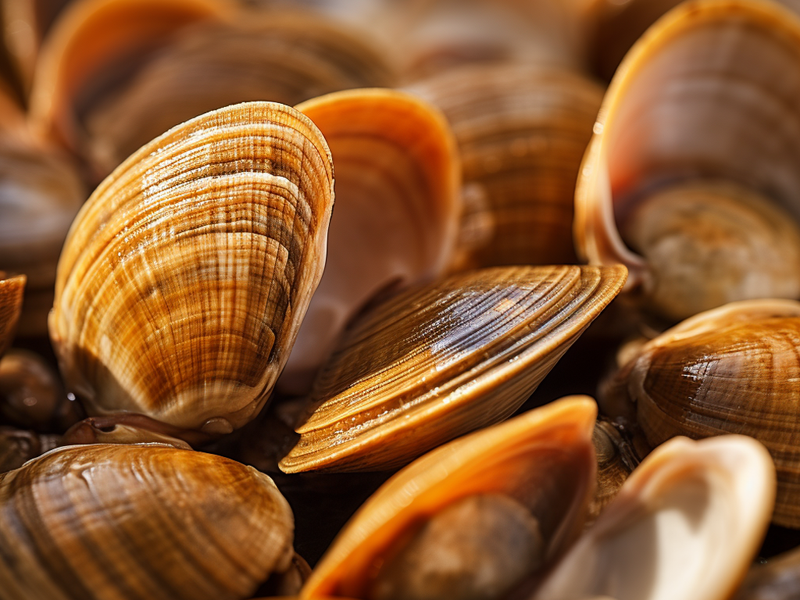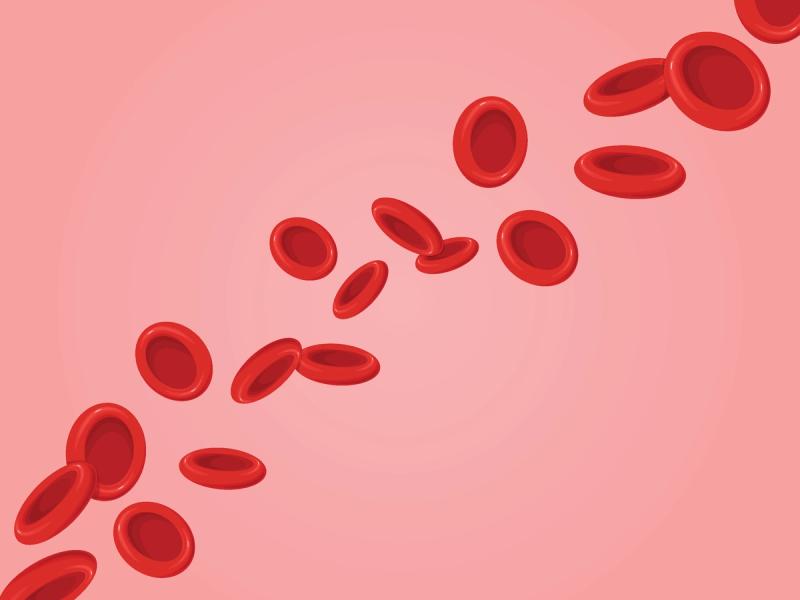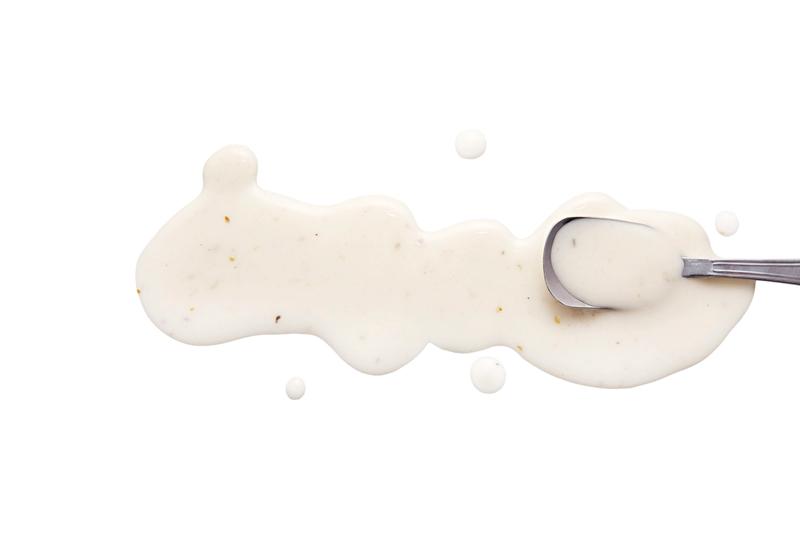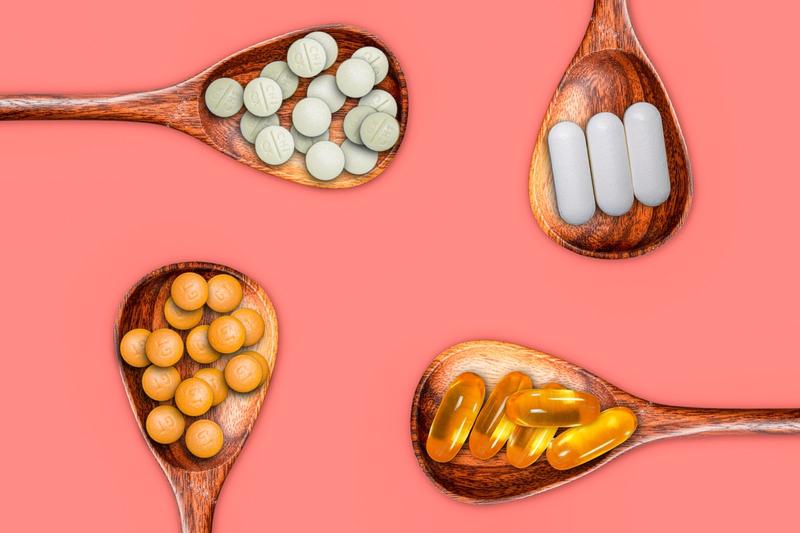
Vitamin B12
- Also known as:
- Cobalamin
About
B12 vitamin is one of the vitamins we hear about most often. Among other things, it is necessary for the formation of new blood cells, maintaining healthy nerves, and promoting an energetic feeling. But despite its importance to our health, many people are not getting enough of this particular vitamin.
What is vitamin B12?
Vitamin B12 - also known as cobalamin - is the name of a group of chemical substances that help your body function properly.
There are a total of 8 different B vitamins, and B12 is one of them (the other vitamins in the B complex are B1, B2, B3, B6, B7, and B9). While each B vitamin has its own specific function, they often work together to maintain our health and wellbeing. What all B vitamins have in common is their crucial role in the body's energy metabolism and cell formation.
We cannot produce vitamin B12 ourselves. Therefore, we depend on obtaining it through our diet by consuming certain foods or, if needed, supplementing with a dietary supplement.
// Did you know that...
Your body can store up to 1,000 times your daily requirement of B12. Consequently, it takes a considerable amount of time – potentially years – before a deficiency in B12 develops, even if you cease taking or absorbing the vitamin. As a result, the symptoms of B12 deficiency often manifest gradually.
Read our article about B Vitamin Complex here.
Prolonged B12 deficiency can cause serious problems. Therefore, you should pay attention to whether you are getting enough B12 through your diet and that your body is able to absorb the vitamin.
We'll tell you more about that if you're interested!

What is vitamin B12 good for?
Vitamin B12 has many important functions. Among other things, it is necessary to form healthy red blood cells that transport oxygen around the body.
It also contributes to normal energy metabolism by helping to convert food into the energy our body needs.
In addition, vitamin B12 plays an essential role in the functioning of the nervous system. It helps maintain healthy nerves and contributes to the formation and protection of our nerve fibres.
Vitamin B12 is also important for the proper functioning of our genetic material (DNA) and for our cells to be able to grow and renew themselves.
Here you can see the functions that science has documented so far about vitamin B12:
- It helps us convert food into energy in the body.
- It helps keep our nervous system healthy and functioning well.
- It helps break down and convert homocysteine in our body to keep levels in balance.
- It contributes to our mental wellbeing and psychological function.
- It plays a role in the formation of red blood cells, which transport oxygen around our body.
- It contributes to the normal functioning of our immune system.
- It helps reduce tiredness and fatigue.
- It is involved in the process of cell division, where our cells grow, develop and are replaced.
// Did you know that...
Vitamin B12 is known to provide an energy boost, which is why some people use it as a natural pick-me-up. However, you will only get an energy boost if you are deficient in the vitamin.

How do you get vitamin B12?
The human body cannot produce vitamin B12 or cobalamin on its own. Therefore, you need to get it through the food and drink you consume. This is the case for almost all vitamins.
But what's special about vitamin B12 is that it is (almost) only found in animal source foods.
Therefore, vegans, as well as vegetarians who only eat small amounts of eggs and dairy products, should pay attention to getting enough B12 by supplementing with a dietary supplement.
If you eat a typical British diet and are otherwise healthy, you don't need to do anything special to meet your daily requirement. A normal Western diet contains 5-20 micrograms of cobalamin per day. According to European authorities, the minimum requirement is estimated at 2-4 micrograms per day.

B12 vitamin foods
B12 is found in a wide variety of foods, but the common denominator for almost all of them is that they are animal-based.
You get it in foods like:
- Liver
- Meat
- Poultry
- Fish
- Shellfish
- Egg
- Yogurt
- Milk
- Cheese
Some foods have been fortified with B12, even though they don't naturally contain it, to prevent deficiency diseases. This is why you can find B12 added to plant-based drinks and soy yogurts.
If you eat animal foods, it doesn't take much to meet your daily requirement. It has been calculated that three deciliters of milk and three slices of cheese per day is enough.
Here you can see examples of foods that contain good amounts of vitamin B12:
Food & Beverage
Vitamin B12 content per 100g
- Calf's liver: 60 µg
- Mussels, cooked: 22.5 µg
- Lumpfish roe: 19.5 µg
- Canned cod roe: 15 µg
- Smoked mackerel: 10.6 µg
- Kippers in oil, canned: 10 µg
- Marinated herring: 7.36 µg
- Eggs: 2 µg
- Ground beef, lean: 2 µg
- Skimmed milk: 0.5 µg
- Natural yogurt: 0.3 µg
Source: Food Institute
Vitamin B12 supplements
B12 is best absorbed through the diet, but if you're eating a diet that doesn't contain enough B12, you should add vitamin B12 supplements to your daily routine.
It is available in several different forms, including vitamin B12 tablets, capsules or lozenges that are placed under the tongue and absorbed through the mucous membranes. Some people prefer this form as it bypasses the digestive system and can therefore (perhaps) lead to better absorption.
The vitamin can be taken separately, but is often part of a B complex with all 8 B vitamins. B12 can also be part of a multivitamin pill or other dietary supplement.
How do you take B12 as a dietary supplement?
Because vitamin B12 is water-soluble, it doesn't make much difference whether you take it with a meal or not. For some, the effect may be greatest on an empty stomach, while others may find it best to take the vitamin with food to avoid stomach irritation.
It's recommended to drink a glass of water while taking the supplement, eg. your B12 vitamin tablets. Since B12 plays a crucial role in metabolizing nutrients and producing energy, many prefer taking it in the morning.
To optimize absorption, it's advisable to spread your vitamin intake throughout the day instead of taking a single dose. While this can be challenging in practice, especially for those prescribed a larger-than-normal dose of B12, it's beneficial to follow this advice. The body can only absorb vitamins in small amounts at a time.
If you're taking B12 as part of a multivitamin pill or a multi-ingredient supplement, follow the product's directions to ensure optimal absorption of all its ingredients.

How much vitamin B12 do you need?
According to the European recommendations drawn up by EFSA (European Food Safety Authorities), 4 μg per day is considered appropriate for both adult men and women, while pregnant and breastfeeding women need a little more.
Can you get vitamin B12 deficiency?
B12 vitamin is a vital nutrient and if you don't get enough of this vitamin through your diet, and possibly a supplement, your body will eventually experience vitamin B12 deficiency, which can have serious consequences.
Unlike the other water-soluble vitamins, the body is able to store vitamin B12 for a long time and recycle the vitamin that is already in the body. Therefore, it will typically take several years before the body has used up its stores of B12 and you start to experience a deficiency.
If you are unsure whether you are deficient in B12 (or at risk), you should contact your doctor for blood tests.
Typical causes of vitamin B12 deficiency
Primary two groups of people are at risk of becoming B12 deficient:
- Those who don't consume enough B12 through their diet.
- Those who are unable to absorb enough of the vitamin for health reasons.
Vegetarians and especially vegans are at risk of B12 deficiency because this vitamin is almost exclusively found in animal source foods. If you are vegan - or vegetarian and only eat small amounts of eggs and dairy products - it is recommended to take B12 supplements.
Some people who get enough B12 from their diet may also be at risk of B12 deficiency. This is especially true for older people and people with gastrointestinal problems, as this can reduce the absorption of this vitamin.

Here are some of the most common causes of B12 deficiency:
- A diet without animal products, over a longer period of time. Vegans and vegetarians are at higher risk of B12 deficiency as the vitamin is primarily found in animal products such as meat, fish, milk and eggs.
- Health problems that prevent you from being able to absorb enough of the vitamin from food. Deficiency is seen in people with gastrointestinal health issues.
- Old age can also increase the risk. B12 deficiency is more common in older people because stomach acid production and therefore absorption of B12 decreases with age. Older people are also more likely to eat too little and too unbalanced.
If you're at increased risk of B12 deficiency, it's important to get checked by your doctor, even if you have only vague symptoms.
Typical symptoms of vitamin B12 deficiency
B12 deficiency can be difficult to detect, both for yourself and for healthcare professionals.
This is partly because the body's stores of B12 are only slowly depleted and therefore the symptoms of B12 deficiency only appear after a long period of inadequate supply (although symptoms can sometimes occur acutely).
Furthermore, the symptoms are often very individual. Therefore, how we react to vitamin B12 deficiency varies.
Initially, there are no signs or symptoms.
But when symptoms do appear, they will often be some of these:
- Fatigue and weakness caused by low blood count (anemia).
- Difficulty concentrating and lack of mental energy.
- Sensory disturbances, typically numbness or tingling in the hands and feet.
- Balance issues such as dizziness, clumsiness and tendency to trip.
- Gastrointestinal problems, such as stomach ache and bloating.
- Soreness in the mouth and tongue.
- Visual disturbances.
- Mood disorders, e.g. confusion, irritation and depression.
How long to recover from vitamin B12 deficiency?
This depends on why you have the deficiency and how low your levels are; it will be individual.
Some might need to take supplements continually, while others could return to normal levels within weeks or months with the right supplements.
Can you get too much vitamin B12?
No, in the studies conducted so far, no side effects have been found with vitamin B12 intake, even at high doses. However, this is something that is still being investigated to learn more.
Vitamin B12 is a water-soluble vitamin, which means that excess amounts are flushed out when you urinate. Furthermore, it is difficult to overdose on this vitamin because it is so difficult to absorb in the gut.